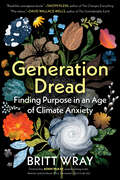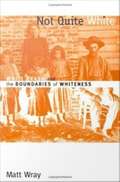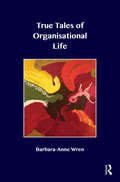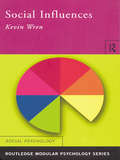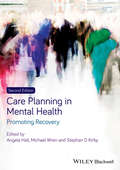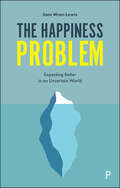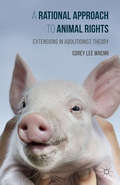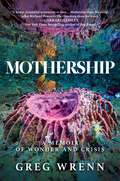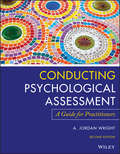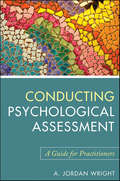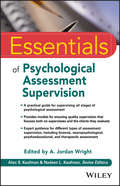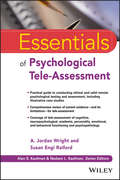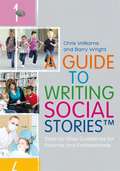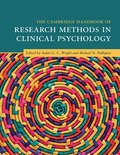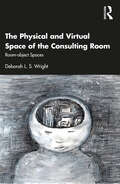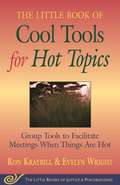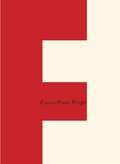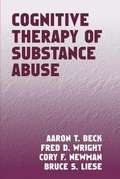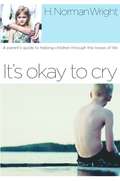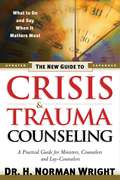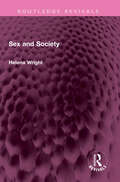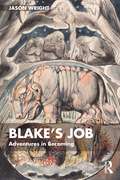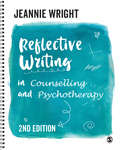- Table View
- List View
Generation Dread: Finding Purpose In An Age Of Climate Anxiety
by Britt Wray“Generation Dread is a vital and deeply compelling read.”—Adam McKay, award-winning writer, director, and producer (Vice, Succession, Don’t Look Up) “Read this courageous book.”—Naomi Klein, author of This Changes Everything “Wray shows finally that meaningful living is possible even in the face of that which threatens to extinguish life itself.”—Dr. Gabor Maté, author of When the Body Says No When we’re faced with record-breaking temperatures, worsening wildfires, more severe storms, and other devastating effects of climate change, feelings of anxiety and despair are normal. In Generation Dread, Britt Wray reminds us that our distress is, at its heart, a sign of our connection to and love for the world. The first step toward becoming a steward of the planet is connecting with our climate emotions—seeing them as a sign of our humanity and empathy and learning how to live with them. Britt Wray, a scientist and expert on the psychological impacts of the climate crisis, brilliantly weaves together research, insight from climate-aware therapists, and personal experience, to illuminate how we can connect with others, find purpose, and thrive in a warming, climate-unsettled world.
Not Quite White: White Trash and the Boundaries of Whiteness
by Matt WrayWhite trash. The phrase conjures up images of dirty rural folk who are poor, ignorant, violent, and incestuous. But where did this stigmatizing phrase come from? And why do these stereotypes persist? Matt Wray answers these and other questions by delving into the long history behind this term of abuse and others like it. Ranging from the early 1700s to the early 1900s, Not Quite White documents the origins and transformations of the multiple meanings projected onto poor rural whites in the United States. Wray draws on a wide variety of primary sources--literary texts, folklore, diaries and journals, medical and scientific articles, social scientific analyses--to construct a dense archive of changing collective representations of poor whites. Of crucial importance are the ideas about poor whites that circulated through early-twentieth-century public health campaigns, such as hookworm eradication and eugenic reforms. In these crusades, impoverished whites, particularly but not exclusively in the American South, were targeted for interventions by sanitarians who viewed them as "filthy, lazy crackers" in need of racial uplift and by eugenicists who viewed them as a "feebleminded menace" to the white race, threats that needed to be confined and involuntarily sterilized. Part historical inquiry and part sociological investigation, Not Quite White demonstrates the power of social categories and boundaries to shape social relationships and institutions, to invent groups where none exist, and to influence policies and legislation that end up harming the very people they aim to help. It illuminates not only the cultural significance and consequences of poor white stereotypes but also how dominant whites exploited and expanded these stereotypes to bolster and defend their own fragile claims to whiteness.
True Tales of Organisational Life: Using Psychology to Create New Spaces and Have New Conversations at Work
by Barbara-Anne WrenThe context in which healthcare is delivered continues to be one of extreme organisational turbulence and increasing workload, factors that exacerbate the anxiety felt by staff about keeping themselves, and their patients, truly safe. At the same time there is a focus on so-called 'failures of compassion' in healthcare services. The need for creative conversations to promote flexibility, hope and resilience in staff has never been greater. In True Tales of Organisational Life, the author describes ways in which space can be created to strengthen the capacity to withstand suffering, whilst acknowledging the creativity and meaningfulness of healthcare work. She describes the application of systemic and narrative psychology to develop interventions at an individual, team, group, and organisational level. The success of these interventions to develop caregivers' confidence to manage the relationships with their patients and with themselves, as opportunities for healing and compassion, is compelling. Case studies illuminate the work described throughout, and the link between storytelling and health is explored.
Social Influences (Routledge Modular Psychology)
by Kevin WrenSocial Influences looks at how we perceive ourselves and others and how this can influence our behaviour. It includes stereotyping and prejudice, obedience and conformity, collective behaviour and leadership.
Care Planning in Mental Health
by Mike Wren Angela Hall Stephan KirbyCare planning and delivery are essential parts of everyday practice for all mental health practitioners. This new edition of Care Planning in Mental Health: Promoting Recovery moves away from a professionally-oriented model of care planning towards the active promotion of the personal narrative as being central to planning effective mental health care. It outlines essential concepts linked to the recovery process which is carried out in partnership with people with mental health problems and those closest to them.New to this edition:A stronger, more explicit focus on recoveryA unique interpretation and explication of the recovery processA greater promotion of the centrality of personhoodExamples drawing on a range of international perspectives and experiencesEnhanced user-friendly pedagogy, including practical case illustrations and first-hand accounts throughoutCare Planning in Mental Health: Promoting Recovery is an ideal resource for anyone involved in the field of mental health care. It is also a valuable learning resource for students studying mental health care and the qualified and experienced practitioner wishing to gain a fresh approach to planning recovery-focused care.
The Happiness Problem: Expecting Better in an Uncertain World
by Sam Wren-LewisWe appear to have more control over our lives than ever before. If we could get things right – the perfect job, relationship, family, body and mind – then we’d be happy. With enough economic growth and technological innovation, we could cure all societal ills. The Happiness Problem shows that this way of thinking is too simplistic and can even be harmful: no matter how much progress we make, we will still be vulnerable to disappointment, loss and suffering. The things we do to make ourselves happy are merely the tip of the iceberg. Sam Wren-Lewis offers an alternative process that acknowledges insecurity and embraces uncertainty. Drawing on our psychological capacities for curiosity and compassion, he proposes that we can connect with, and gain a deeper understanding of, the personal and social challenges that define our time
A Rational Approach to Animal Rights: Extensions in Abolitionist Theory
by Corey WrennApplying critical sociological theory, this book explores the shortcomings of popular tactics in animal liberation efforts. Building a case for a scientifically-grounded grassroots approach, it is argued that professionalized advocacy that works in the service of theistic, capitalist, patriarchal institutions will find difficulty achieving success.
Mothership: A Memoir of Wonder and Crisis
by Greg WrennA dazzling, evidence-based account of one man&’s quest to heal from complex PTSD by turning to endangered coral reefs and psychedelic plants after traditional therapies failed—and his awakening to the need for us to heal the planet as well.Professor Greg Wrenn likes to tell his nature-writing students, &“The ecological is personal, and the personal is ecological.&” What he&’s never told them is how he&’s lived out those correspondences to heal from childhood abuse at the hands of his mother. Weaving together memoir and cutting-edge science, Mothership is not just a queer coming-of-age story. It&’s a deeply researched account of how coral reefs and a psychedelic tea called ayahuasca helped Greg heal from complex PTSD—a disorder of trust, which makes the very act of bonding with someone else panic-inducing. From the tide pools in Florida where he grew up, to Indonesia&’s Raja Ampat archipelago and the Amazon rainforest, this is his search for wholeness when talk therapy and pharmaceuticals did little to help. Along the way, as his ecological conscience wakes up, he takes readers underwater to the last pristine reefs on earth, and into the psyche.Written with prophetic urgency, Mothership ultimately asks if doses of nature will be enough to save us before it&’s too late.
Conducting Psychological Assessment: A Guide for Practitioners
by A. Jordan WrightPraise for CONDUCTING PSYCHOLOGICAL ASSESSMENT "This new addition of Wright's useful text is a tour de force. No one else writes more clearly, practically, and helpfully than Wright about psychological assessment—especially about the complex process of case conceptualization. This book should be required reading in every graduate course on psychological assessment." —Stephen E. Finn, PhD, Founder, Center for Therapeutic Assessment "A. Jordan Wright's Conducting Psychological Assessment is a comprehensive step-by-step guide to every aspect of psychological testing and assessment. Blending clinical wisdom with rigorous empirical evidence, the author guides readers though every phase of the assessment process, from selecting appropriate measures and collecting test data through writing assessment reports and providing feedback to clients. Experienced clinicians, early career psychologists, and students will all benefit from this important book; it should be on every clinician's bookshelf." —Robert F. Bornstein, PhD, Derner School of Psychology, Adelphi University "Conducting Psychological Assessment (2nd ed) provides a clear, concise, practical guide to essential aspects of clinical assessment. Dr. Wright presents scholarly research, draws on extensive clinical experience, and illustrates his guidelines with rich case examples. Much of this information is typically not included in other assessment books, such as how to select tests, strategies to integrate contradictory data, and how to work with clients who disagree with assessment results. Accordingly, I recommend this to all health professionals involved with clinical assessment." —Gary Groth-Marnat, PhD, ABPP, ABAP
Conducting Psychological Assessment
by A. Jordan WrightA Valuable Guide to the Entire Process of Psychological AssessmentCarefully working through all the phases of assessment, including integrating, conceptualizing, test selection, administering, scoring, and report writing, Conducting Psychological Assessment provides clinicians with a step-by-step methodology for conducting skilled individual assessments, from beginning to end.Unlike most guides to assessment, this book addresses the critical steps that follow administration, scoring, and interpretation--namely the integration of the data into a fully conceptualized report. Rich with case studies that illustrate every major point, this text provides a coherent structure for the entire process, taking into account the imperfection of both clinical intuition and specific psychological tests.Conducting Psychological Assessment presents practitioners with an accessible framework to help make the process of psychological assessment quicker, easier, and more efficient. It offers a model designed to ensure that assessors provide ethical and competent services and make useful contributions to the lives of the individuals they assess.
Essentials of Psychological Assessment Supervision (Essentials of Psychological Assessment)
by A. Jordan WrightThe only pocket-size reference on supervising psychological testing and assessment In 2014, the American Psychological Association (APA) adopted a set of guidelines for clinical supervision for health service psychology. While technically covered by these guidelines, supervising clinical psychological assessment includes additional tasks (such as ensuring accurate administration, scoring, and interpretation of tests) and tensions. Supervisors must often instruct supervisees on the data-integration process—which can involve more direct teaching than standard clinical supervision—while encompassing the same interpersonal, therapeutic, and less structured guiding aspects as psychotherapy supervision. It is increasingly common to view clinical supervision in the assessment process and supervision of psychotherapy as two significantly different tasks. Surprisingly, there is very little training and guidance available on appropriate, effective, and beneficial methods of psychological assessment supervision. Essentials of Psychological Assessment Supervision seeks to remedy the lack of literature in this area, offering guidance on supervising psychological testing and assessment. This much-needed guide provides supervisors with authoritative, up-to-date information on guidelines relevant to assessment supervision. Additionally, detailed coverage of supervision of cognitive, personality/emotional, psychoeducational, neuropsychological, forensic, and therapeutic assessments, among others, provide supervisors with guidance and structure in the supervision process. Focusing on practical application, this book offers guidance on topics such as assessment models appropriate in different areas of assessment; diversity issues; evaluation and feedback of supervisee performance; and ethical, legal, and regulatory considerations relevant in each assessment context. An invaluable resource for practitioners, this book: Offers practical advice on supervising a wide range of clinical psychological assessments Includes contributions from experts in their respective subfields Provides guidance on incorporating new American Psychological Association (APA) and Society for Personality Assessment (SPA) guidelines into the supervision process Fills an urgent need for an up-to-date reference on assessment supervision Essentials of Psychological Assessment Supervision is a must-have reference for both psychology practitioners who supervise the assessment process and instructors of psychological testing and assessment.
Essentials of Psychological Tele-Assessment (Essentials of Psychological Assessment)
by A. Jordan Wright Susan Engi RaifordDiscover a comprehensive and practical guide to the use of tele-assessments in psychological testing from two leading voices in psychology. Essentials of Psychological Tele-Assessment delivers a primer on the current state of professional knowledge related to psychological tele-assessment, ranging from the ethical and empirical considerations to the practical applications of tele-assessment procedures. The overarching framework encourages the balancing of the limitations of the current state of the research literature with the very real needs for assessment services to continue, even when in-person procedures are not feasible. This book includes discussion on a broad range of tests and measures, with information related to both the state of the empirical support for tele-tests and measures, with information related to both the state of the empirical support for tele-assessment utilizing them and the practical 'how-to' for administering, scoring and interpreting daa that emerge from them. Additionally, frameworks for integrating the data that emerge from tele-assessment procedures are discussed. The book is applicable to those transitioning to tele-assessment practice and those training in a wide variety of training programs. Readers will also benefit from the inclusion of: - Practical checklists and information about specific tests must be adapted to the realities of the tele-health environment. - Information about how the resutls of tests should be interpreted differently to account for the tele-health environment. -Case examples and studies to illustrate many of the challenges of working in tele-assessment -Guidance on how to balance the limitations of the state of the empirical literature on the validity of tele-assessment with the real-world needs of clients. Perfect for psychologists and trainees in a variety of health services, including clinical, counseling, school and forensic psychology, Essentials of Psychological Tele-Assessment will also earn a place in the libraries of anyone utilizing or training in cognitive, developmental, neuropsychological, psychoanalytic, psychodynamic, and interpersonal models of psychological assessment.
A Guide to Writing Social Stories™: Step-by-Step Guidelines for Parents and Professionals
by Barry Wright Chris WilliamsSocial StoriesTM are a widely used and highly effective intervention for supporting children on the autism spectrum, but it can feel overwhelming to follow all the rules put in place to create personalised stories. Developed with the input of parents and professionals, and informed by new Social Stories research, this is a comprehensive, clear, easy step-by-step guide to writing effective personalised Social StoriesTM that give children social information, creating many benefits for them. The book includes many examples of real Social Stories created for children by parents and teachers working together, and handy downloadable checklists that highlight the essential components of a Social Story, helping to ensure that each story you write achieves the best possible results.
The Cambridge Handbook of Research Methods in Clinical Psychology (Cambridge Handbooks in Psychology)
by Wright Aidan G. C. Michael N. HallquistThis book integrates philosophy of science, data acquisition methods, and statistical modeling techniques to present readers with a forward-thinking perspective on clinical science. It reviews modern research practices in clinical psychology that support the goals of psychological science, study designs that promote good research, and quantitative methods that can test specific scientific questions. It covers new themes in research including intensive longitudinal designs, neurobiology, developmental psychopathology, and advanced computational methods such as machine learning. Core chapters examine significant statistical topics, for example missing data, causality, meta-analysis, latent variable analysis, and dyadic data analysis. A balanced overview of observational and experimental designs is also supplied, including preclinical research and intervention science. This is a foundational resource that supports the methodological training of the current and future generations of clinical psychological scientists.
The Physical and Virtual Space of the Consulting Room: Room-object Spaces
by Deborah L WrightIn this thought-provoking book, Deborah Wright examines the role of both space and objects as they become manifest in the psychoanalytic process and looks at how the role of the consulting room in the therapeutic process is both primitive and transferential. Wright explores spatialisation as simultaneously being a psychological projection of meaning and as physically acting upon the environment, utilised to master the undifferentiated, relentless, internal pressure of instinct. Throughout The Physical and Virtual Space of the Consulting Room, she considers the spatial aspects of work with patients by foregrounding the importance of the consulting room and its contents, including the impact of changes of consulting room, travelling, and in working virtually. Illustrated with clinical material and hand-drawn artwork, Wright orients the reader in the new territory by going beyond the existing literature that considers the objects and space of the consulting room solely as transferential aspects of the analyst. The interdisciplinary approach in this book calls on psychoanalytic theory and technique as well as philosophy, history, archaeology, and anthropology, which will be of great interest to all psychoanalytically orientated therapists as well as anyone, clinical or non-clinical, who makes use of psychoanalysis.
The Little Book of Cool Tools for Hot Topics: Group Tools to Facilitate Meetings When Things Are Hot
by Evelyn Wright Ron KraybillLead author Ron Kraybill is a professor of Conflict Studies in the Conflict Transformation Program at Eastern Mennonite University, Harrisonburg, Virginia. During the years of the South African political transition, he trained local, regional, and national leadership in negotiation and mediation skills and served as a training advisor to the National Peace Accord. Cool Tools is rich in anecdotes and practical how-to for any group faced with tension-filled decision-making.
F: Poems
by Franz WrightIn these riveting poems, Wright declares, "I've said all that / I had to say. / In writing. / I signed my name. / It's death's move." As he considers his mortality, the poet finds a new elation and clarity on the page, handing over for our examination the flawed yet kneeling-in-gratitude self he has become. F stands both for Franz, the poet-speaker who represents all of us on our baffling lifelong journeys, and for the alphabet, the utility and sometimes brutality of our symbols. (It may be, he jokes grimly, his "grade in life.") From "Entries of the Cell," the long central poem that details the loneliness of the single soul, to short narrative prose poems and traditional lyrics, Wright revels in the compensatory power of language, observing the daytime headlights following a hearse, or the wind, "blessing one by one the unlighted buds of the backbent peach tree's unnoted return." He is at his best in this beautiful and startling collection.ent peach tree's unnoticed return." He is at his best in this beautiful and startling collection. From the Hardcover edition.
Cognitive Therapy of Substance Abuse
by Fred D. Wright Aaron T. BeckCognitive therapy offers a well-documented and cost-effective psychosocial treatment model for working with substance abuse disorders. Comprehensive and accessible, this volume clearly details the cognitive model of addiction, the specifics of case formulation, management of the therapeutic relationship, and the structure of the therapy sessions. It discusses how to educate patients in the treatment model and procedures and manage their cravings and urges for drugs and alcohol. Specific cognitive and behavioral strategies and techniques are described in detail, as are methods for understanding and working with patients who present concomitant problems of depression, anxiety, low frustration tolerance, anger, and personality disorders. Also addressed are such significant issues as crisis management and relapse prevention. Enhancing the utility of the volume are appendices featuring sample client inventories and checklists. These forms are designed to help the clinician identify targets for intervention, track progress over time, and develop an individualized relapse prevention plan for each client.
How To Get Along With Almost Anyone
by H. Norman WrightThe book is packed with inspiration and practical ideas to dramatically improve the quality of your relationships with your friends, co-workers, your spouse, and even your mother-in-law. Mr. Wright draws on a wealth of Scripture to show us how to heal broken hearts and shattered relationships.
It's Okay to Cry: A Parent's Guide to Helping Children Through the Losses of Life
by H. Norman WrightHelp Your Child Heal From Life's LossesA favorite toy breaks . . . . A pet dies . . . It's Okay to Cry.Parents divorce and you're forced to move . . . It's Okay to Cry.A best friend is hurt badly . . . . A grandparent dies . . .It's Okay to Cry.Look through the eyes of a child again. When something unexpected, disappointing, or traumatic occurs, children feel a very real sense of loss. They may respond with fear or with anger. Most likely they are confused. They have questions they want answered. They need help from their parents or others who care to understand and process their grief. It's Okay to Cry offers practical help for parents. It explains the symptoms of loss and unresolved grief so that parents can recognize them and walk alongside their children on the path to recovery.Well-known and respected author H. Norman Wright speaks to parents with sympathy and reassurance. He recognizes that most parents don't know how to teach their children to process loss, because often they weren't taught themselves. His sage advice will give you and your child the comfort and hope you seek.From the Trade Paperback edition.
The New Guide to Crisis and Trauma Counseling
by H. Norman WrightAn informative and practical guide for beginning or lay counselors and those in situations that require immediate action in emergency situations. This relaunch of Crisis Counseling is upgraded and expanded, with new material and anecdotes in chapters that cover the areas of crisis intervention, how to counsel the depressed, the suicidal, and those going through divorce, children and adolescents crisis, and more. This classic volume on the trauma of loss and grief provides excellent instruction on what to do for others in the first 72 hours following a crisis for those who are helpless to help themselves.
Sex and Society (Routledge Revivals)
by Helena WrightFirst published in 1968, Sex and Society presents and analyses the code of sexual behaviour based on the universal use of contraceptive methods. It includes discussion of all forms of sexual activity, and emphasises in particular the attitudes that should be adopted in sex education. Backed up by case histories, and including details of reforms in abortion and homosexual law, this book sheds light on a topic which continues to cause concern in modern times. The author had been in active contact with all kinds of sexual problems for over thirty years in her professional clinic practice, and in her travels in India, Poland and Denmark teaching contraceptive techniques to doctors and nurses. Her experience as a Founder Member of the International Planned Parenthood Federation and participation in all the International and Regional Conferences gave her a very wide knowledge of sexual and social problems throughout the world. This book will be of interest to students of medicine, sexuality studies, psychology, gender studies, and health.
Blake's Job: Adventures in Becoming
by Jason WrightIn this unique book, Jason Wright analyses William Blake’s Illustrations of the Book of Job and shows their relevance in clinical psychoanalysis and psychotherapy with groups and individuals, especially while working with patients who have experienced trauma and addiction. Drawing on decades of work in the field, this book sees Wright offer sensitive guidance to practitioners dealing with client experiences of change through the lens of addiction and offers useful insight to the lay reader. Throughout the chapters, Wright studies each illustration in depth and shows how they chart the breakdown of Job’s life into a state of despair. Twinning a clinical vignette with each plate, Wright shows how these depictions can be directly applied to issues faced in contemporary analysis, therapy and addiction recovery. From Job’s dissolution to his eventual salvation, Wright insightfully maps the process of change from a place of destitution to one of redemption and hope set in the context of the group. He expertly brings Blakean theory into the 21st century by looking at contemporary experience such as the impact of the 2005 London bombings, as well as looking at the importance of community, collective experience and self-identity when seeking recovery. Throughout, Wright draws inspiration from eminent analysts such as Bion, Winnicott and Hillman, while also looking to Jung, Bohm and Whitehead to support his theories on the new way of being he proposes: a collective dynamic shift from a consciousness of exploitation to a consciousness of resonance. This book will be of great interest to psychoanalysts, psychotherapists and mental health professionals working in addiction recovery, as well as those interested in the work of Blake and its continued importance in the present day.
Reflective Writing in Counselling and Psychotherapy
by Jeannie WrightIn this book Jeannie Wright takes readers on a journey from how to start writing, through the various approaches, on to how to deal with obstacles, and how to maintain reflective enquiry as a professional habit. Reflective writing exercises, case studies and ideas for self-directed learning will help readers practice and apply their skills. This second edition includes more content on: the new Ethical Framework technological developments impacting counselling diversity and difference in the therapeutic relationship This book is an essential how-to guide for trainees and practitioners that provides them with all the tools they need to develop writing for reflective practice.
Reflective Writing in Counselling and Psychotherapy
by Jeannie WrightIn this book Jeannie Wright takes readers on a journey from how to start writing, through the various approaches, on to how to deal with obstacles, and how to maintain reflective enquiry as a professional habit. Reflective writing exercises, case studies and ideas for self-directed learning will help readers practice and apply their skills. This second edition includes more content on: the new Ethical Framework technological developments impacting counselling diversity and difference in the therapeutic relationship This book is an essential how-to guide for trainees and practitioners that provides them with all the tools they need to develop writing for reflective practice.
